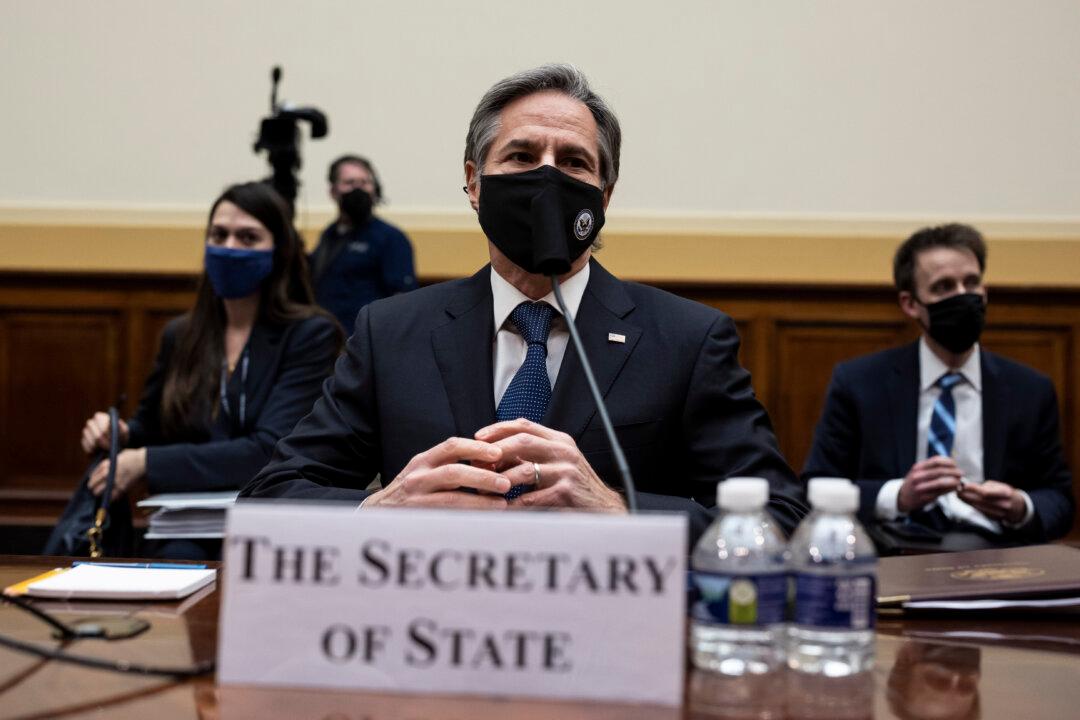U.S. Secretary of State Antony Blinken said on March 10 he intends to lay out in “very frank terms” the United States’ “deep objections” to the Beijing regime’s behavior in a meeting with top Chinese Communist Party (CCP) officials next week.
He added that the United States won’t make any concessions to China to get its cooperation on implementing the Paris climate agreement.





